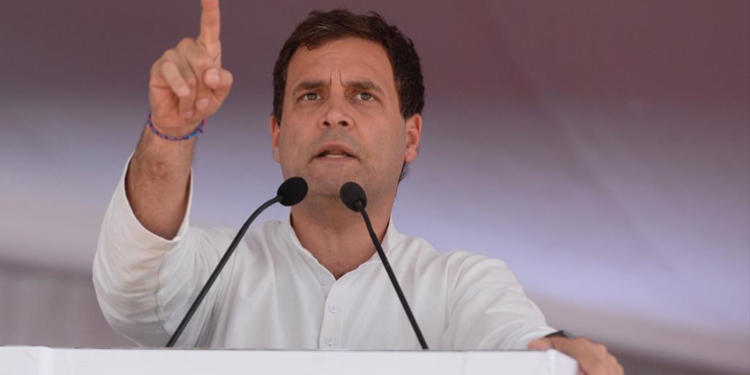The domestic traders’ body, The Confederation of All India Traders (CAIT) has criticized Rahul Gandhi for his sweeping remarks on GST. The Congress president criticized GST for the multiple tax slabs but the CAIT is happy with it and willing to adopt the indirect tax reforms in a cohesive manner. “We have come across one of your statements made yesterday (Tuesday) at a rally that traders are suffering from GST and if you come to power, you will abolish ‘Gabbar Singh Tax’ as called by you for GST. As a representative body of business community of the country, we highly object your statement which is highly deplorable and far from facts and is being seen as an attempt by you to score points on shoulders of traders,” said CAIT National Secretary General Praveen Khandelwal in a letter to the Congress president.
There is no denying that in initial months, traders faced problems because the new indirect tax code was a great leap forward from the old system. But the government designed the Goods and Services Tax as feedback based system and GST council takes the decision in every meeting on the basis of feedback received from trading and industry bodies. The steps taken by GST council in the last one and a half year improved and simplified the system to a great extent and this was also evident from the CAIT statement. The inspector raj and the burden of paperwork ended with the implementation of GST.
The trader’s body condemned the attempt by Rahul Gandhi to politicize the greatest indirect tax reform in the country. It said the statements by Rahul Gandhi are far from facts and being seen as an attempt “to score political points on the shoulders of traders”. “We highly object that taking the shoulders of traders, you have called GST as Gabbar Singh Tax. It gives an impression that perhaps relaxations, amendments, simplification and lowering of tax rates are certainly not in your knowledge that’s why you are saying that traders are suffering from GST which is certainly not the case,” read the letter.
Congress president Rahul Gandhi has often termed the tax as ‘Gabbar Singh Tax’ given its complicated structure and multiple slabs. Congress wanted a single rate GST. However, the single rate tax structure, similar to the kind Congress had proposed, failed miserably in Malaysia and the newly elected Prime Minister, Mahathir Bin Mohamad, announced that he would scrap the 6% GST rate. The Indian government and policymakers were smart enough to rule out the single rate GST proposed by the Congress Party. Had the BJP government implemented a single rate, India’s GST would have met the same fate as that of Malaysia.
A single rate would have caused inflation in essential commodities like food, medicine, essential services etc., and the elites of the country would have benefitted, because in a single rate GST, as Arun Jaitley rightfully said, “Hawai chappal and Mercedes car would have been taxed at the same rate.”
Had the government followed the Congress proposed model, its Antyodaya dreams would have remained unfulfilled. The Goods and Services Tax model proposed by Congress is an elitist model at best in which essential commodities and luxury goods would have been taxed at the same rate. The Malaysian government, which brought GST with a single tax rate model in 2015 scrapped it in 2018. Congress party should have taken a leaf out of the Malaysian example and have done some course correction, but they stuck to the same old tune, crooning it like a trained parrot.
The only thing the Congress party has learnt in its last four years in the opposition benches is to oppose every move by the present government. The grand verdict is out – the Congress’ model would have been a failure of gargantuan proportions.
























